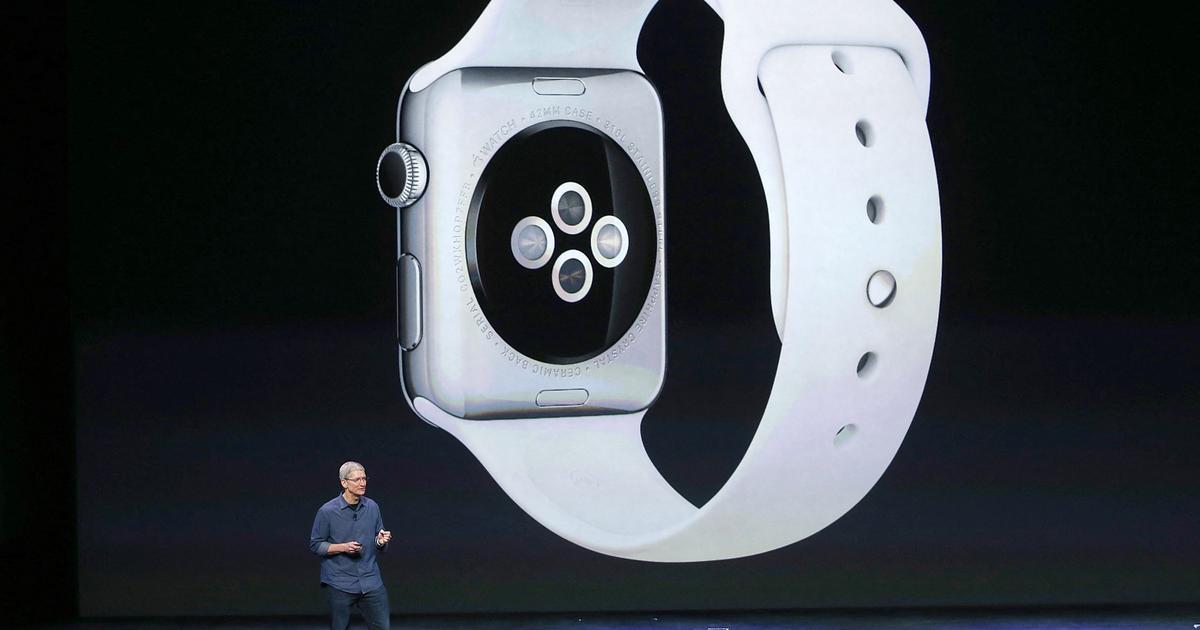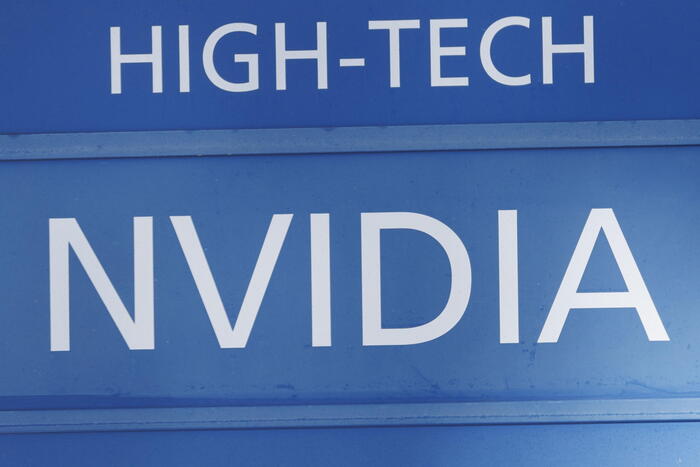Enlarge image
Joy looks different:
A stockbroker in New York looks at the stock prices, which have been slipping for months
Photo: IMAGO/Michael Nagle/IMAGO/Xinhua
The wild days of the US ride-hailing service Uber are apparently finally over.
According to an internal letter from company boss
Dara Khosrowshahi
, the start-up wants to hire fewer employees and save costs in the future.
Marketing and activities to motivate employees would also be scaled back, according to the letter quoted by the Reuters news agency.
Uber is thus following a trend that can also be observed at other technology companies.
Different companies want to pay more attention to their expenses.
Facebook owner Meta, for example, said last week that it would slow down job growth.
Uber boss Khosrowshahi justified the change of heart in the US broadcaster CNBC with fundamental changes on the investor side.
Uber will now focus on becoming profitable on a free cash flow basis.
The development on the stock market at the beginning of this week may give an idea of the "fundamental changes on the investor side" that Khosrowshahi addressed.
The US stock markets in particular continued their downward trend of the past few months and ended Monday with sharp price drops.
Tech stocks in particular once again suffered particularly heavy losses.
The technology-heavy Nasdaq 100 index fell 4 percent on Monday alone and ended trading at its lowest level in well over a year.
It was one of many losing days the US tech stock market has seen in recent months.
Since peaking in November 2021, the Nasdaq is now down about 25 percent.
For years, huge amounts of investor money had flowed into tech companies such as Amazon, Tesla or Apple.
Investors had used the cheap money from the central banks to increase company valuations to astronomical heights.
This tech hype was at the center of the global stock market boom in recent years.
But that's apparently over.
It's no coincidence that stock prices tumbled last fall - not just on the tech stock market, but especially there.
At the time, concerns about rising inflation rates were growing and central banks were about to intervene.
It is now clear that the US Federal Reserve and others are taking massive action against the rise in the general price level.
The days of cheap money are likely to be a thing of the past for a long time, investors are becoming more and more aware of that.
With rising interest rates, the exaggerated valuations of many technology stocks are also losing their basis.
The result is a sell-off in installments that has been dragging on for months on the Nasdaq.
This affects large tech companies such as Amazon or the Facebook parent Meta as well as smaller tech companies.
For example, the San Francisco-based company Docusign has made the biggest price drop in the Nasdaq 100 index, down around 75 percent since November last year.
The company, which offers solutions for electronic contract conclusions, recently made annual sales of around eleven billion dollars.
In addition, among the biggest losers on the tech stock market are those companies that were hyped a while ago as winners of the Corona crisis.
Companies such as Netflix or Zoom have now suffered price losses of more than 60 or 70 percent since their highs and are sometimes still trading below the price level they had before the pandemic.
Enlarge image
On the lookout for swimming trunks:
US investor
Warren Buffett
invests in healthy companies
Photo:
Arne Dedert / dpa
However, a price loss is not the same as a price loss.
Or as star investor and multi-billionaire
Warren Buffett
once put it: "It's only when the tide goes out that you see who wasn't wearing their swimming trunks the whole time."
Almost all tech stocks are currently suffering price losses because almost all of them were previously overvalued.
But some corporations are in a much better financial position than others.
Their prospects of recovering from the stock price decline sooner or later therefore appear better.
Here are five examples:
Microsoft
The shares of the software group also had to give up around a fifth of their value in the past few months, which puts Microsoft in an even better position than the Nasdaq 100 index overall.
The company provided one reason for this at the end of April with its business figures for the first quarter: Microsoft delighted investors with an 18 percent increase in sales to just under 49.4 billion dollars.
That's more than analysts had expected.
Operating profit also rose sharply by 19 percent to $20.4 billion.
Particularly pleasing: The cloud business – including the Azure offering – grew by 26 percent.
Microsoft is undoubtedly one of the top dogs among tech companies, a big player with a stable business model and – thanks to the cloud – continued good growth prospects.
"Pessimistic investors were concerned that the cloud might already be past its prime," commented one analyst on the IT giant's business figures.
In view of the robust results, however, they were taught better.
Apple
The most important news from Cupertino: The iPhone continues to sell well.
Revenue from the top revenue generator rose 5.4 percent to $50.6 billion in the most recent quarter.
Overall, the group also proved that it was able to withstand the adversities of the global economy - keyword chip shortage - well to the end.
Apple increased its revenue by 9 percent to $97.3 billion in the first few months of the year compared to 2021.
The bottom line was a profit of 25 billion dollars in the coffers - almost 6 percent more than a year earlier.
It was Apple's third-highest quarterly profit.
The figures show that the iPhone group is also going through the crisis in good health.
Apple boss
Tim Cook
had to admit that the loss of business in Russia and renewed corona lockdowns in China would cause problems.
"We're not immune," Cook said, prompting investors to send the stock down more than 2 percent.
Overall, however, the Apple paper is one of the few on the Nasdaq that has been in positive territory since November.
That speaks for itself.
Alibaba
Almost 60 percent price loss over a twelve-month period, almost 30 percent over a three-month period and a minus of 15 percent within one month - the Chinese online retailer Alibaba is also one of the tech companies that have not pleased their investors for a long time .
In this case, however, the background is less the mix of inflation, central bank policy and interest rate increases.
Rather, Alibaba was targeted early on by the Chinese authorities, who may have been unnerved by the growth of the group.
As a result, restrictions and regulations also hit the tech competition in China, resulting in price losses across the board.
But now the political wind could turn for the Chinese tech industry.
The major Swiss bank UBS draws attention to a recent report by the Chinese newspaper "Economic Daily", according to which the country's authorities intend to support the development of the major Internet platforms in the future, as they contribute to growth and create jobs.
The background may be the faltering economic growth in the People's Republic and the renewed fight against the corona pandemic with various lockdowns that are affecting economic development.
Both could have changed Beijing's mind regarding the tech industry.
According to the newspaper report, the People's Republic's Politburo is interested in "healthy development".
The UBS interprets this at least as a sign of a breathing space for the industry.
The latest signs from politics appear supportive, says
Mark Haefele
, chief investment officer at UBS Global Wealth Management.
A lot of negative things have already been priced into share prices.
Elon Musk
has often been criticized as a braggart who makes promises that later never come true.
But in the meantime it can hardly be denied: Musk has delivered with Tesla in recent years.
The electric car manufacturer, which has been making losses and burned a lot of money for years, is profitable and, in the global shift to electromobility, is now setting the pace for the entire auto industry.
From this point of view, Twitter's stock is possibly the hottest stock that tech investors can have in their portfolio right now.
And not just because of the purchase price offered by Musk of $54.20 per share, which represents a protection that can hardly be overestimated, especially in the current environment of tech stocks.
As is well known, Musk wants to take over the short message service in a $ 44 billion deal.
Until the first speculation about the takeover caused the price to rise at the end of March, Twitter was quoted at between $30 and $40.
Last summer, the paper was traded for around 70 dollars.
Enlarge image
Reach for Twitter: Elon Musk
has big plans
Photo: Susan Walsh/AP
But even looking ahead can make Twitter shareholders confident.
As recently reported by the "New York Times", Musk has plans for the company.
Twitter revenue is expected to reach $26.4 billion annually by 2028, according to the newspaper, citing investor documentation.
Last year sales were just $5 billion.
The share of advertising in the proceeds is to shrink.
Instead, subscriptions are supposed to bring money into the coffers.
Musk wants to increase cash flow to $3.2 billion in 2025 and $9.4 billion in 2028, the newspaper wrote.
Twitter shareholders looking at what happened to Musk's announcements at Tesla should get a gleam in their eyes.
Broadcom
Three arguments speak for the shares of the semiconductor company from San Jose, California, which was once part of the computer manufacturer Hewlett-Packard.
First, Broadcom stock has come through the past few months about as unscathed as Apple stock.
While the Nasdaq 100 has collapsed by around 25 percent since its peak in November 2021, Broadcom is even trading slightly above the level of the past.
Second: The world economy has been in a chip crisis for months, semiconductors are scarce and hard to come by.
In Germany, car manufacturers such as Volkswagen, Mercedes-Benz and BMW have therefore had to limit their production.
As a supplier of semiconductor chips, Broadcom is one of the companies benefiting from these bottlenecks.
The chip crisis will pass at some point.
However, Broadcom has already established itself as a provider, delivering to prominent addresses such as Apple.
Third: Before the big tech companies slid on the stock market, their prices went up for years.
The acronym "FAANG" made the rounds at the time, formed from the initials of Facebook (today Meta), Apple, Amazon, Netflix and Alphabet (formerly Google).
Among those who propagated this abbreviation as a code for successful investing was the prominent US TV journalist
Jim Cramer
with his program "Mad Money" on CNBC.
And today?
Cramer promotes a new acronym.
"MANGO" should bring future price gains to investors.
It stands for the tech companies Marvell Technologies, Advanced Micro Devices (AMD), Analog Devices, Nvidia, Globalfoundries and ON Semiconductor.
And: According to Cramer, Broadcom with the ticker symbol AVGO is also part of his new favorite combo.
So what's supposed to go wrong?


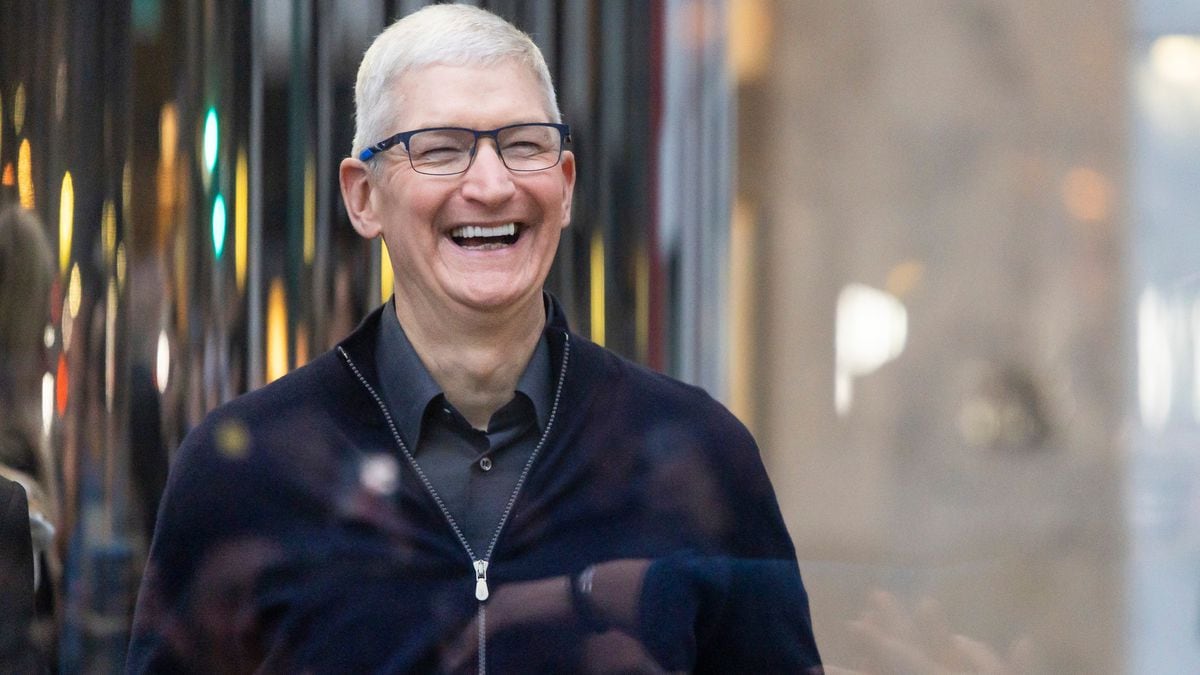
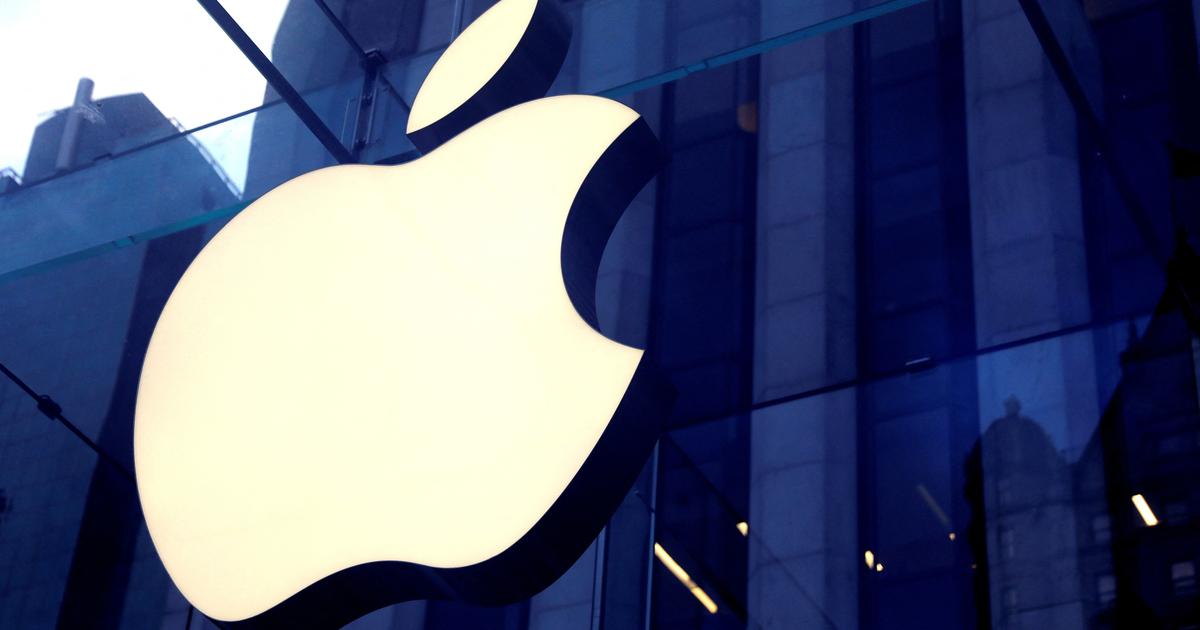
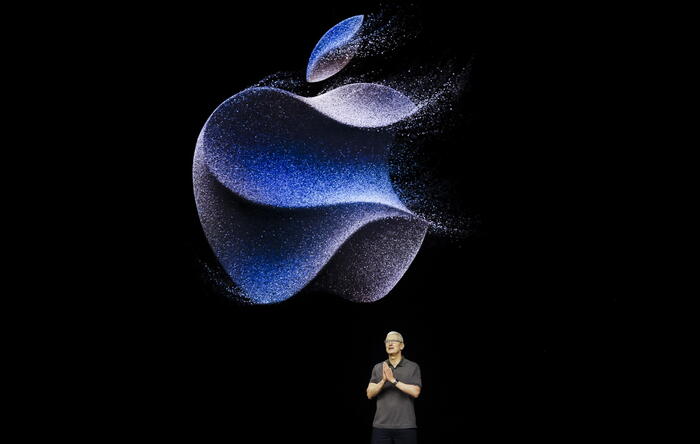
/cloudfront-eu-central-1.images.arcpublishing.com/prisa/MUTRAEQZHBADNCTJ7OTNDGNVTA.jpg)


